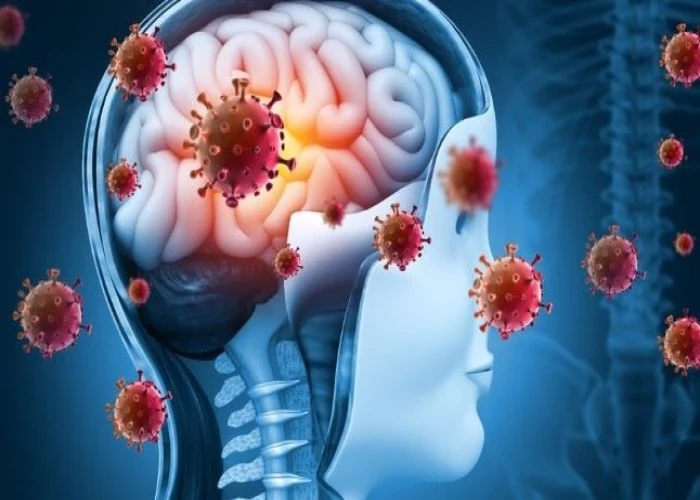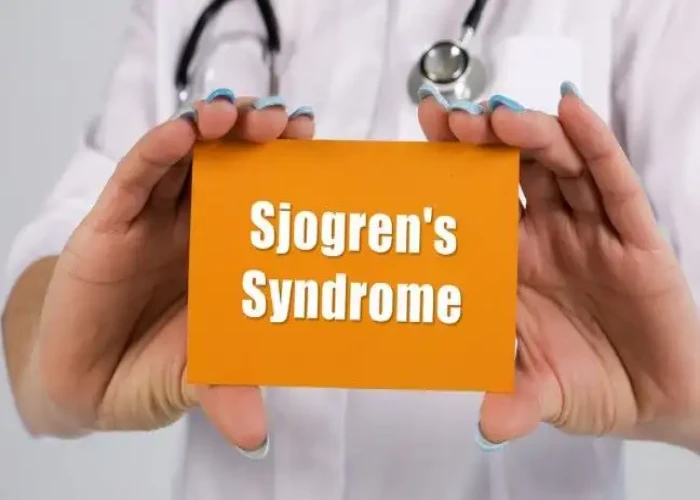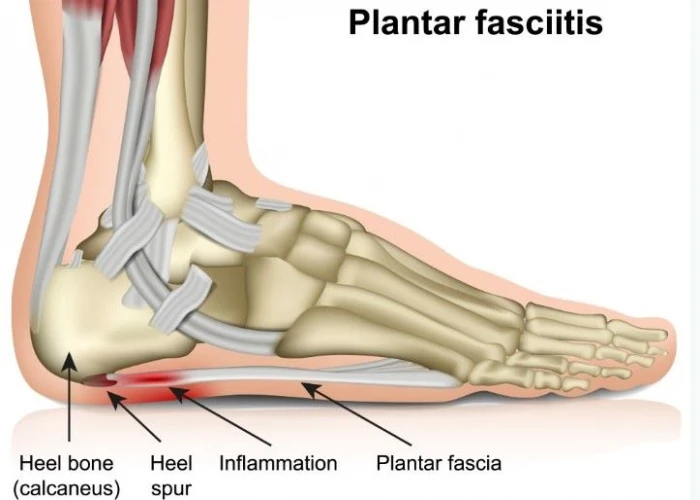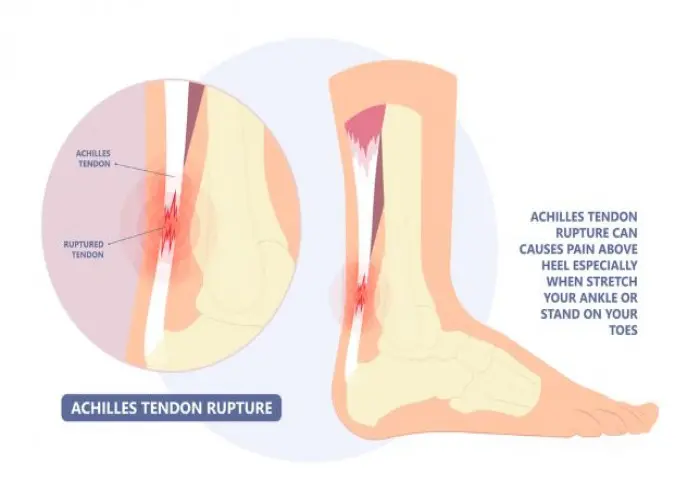 Welcome
Welcome
“May all be happy, may all be healed, may all be at peace and may no one ever suffer."
Meningitis

Meningitis is a serious inflammation of the membranes (meninges) that surround the brain and spinal cord. It is typically caused by a bacterial or viral infection, and can also be caused by fungal infections, parasites, or non-infectious causes such as drug reactions or cancer.
The symptoms of meningitis can vary depending on the cause and severity of the infection, but can include:
- Fever
- Headache
- Stiff neck
- Nausea and vomiting
- Photophobia (sensitivity to light)
- Confusion or altered mental status
- Seizures
- Skin rash
Meningitis is a medical emergency and requires immediate evaluation and treatment. Diagnosis is typically made through a combination of physical examination, medical history, and laboratory tests, such as blood tests, imaging studies, and a lumbar puncture (spinal tap) to collect cerebrospinal fluid for analysis.
Treatment for meningitis typically involves hospitalization with intravenous (IV) antibiotics or antiviral medications to control the infection. Supportive care, such as oxygen therapy, fluid and electrolyte management, and pain relief, may also be necessary. In some cases, corticosteroids may be used to reduce inflammation and improve outcomes.
Prevention of meningitis includes vaccination against certain bacterial and viral infections that can cause meningitis, such as Haemophilus influenzae, meningococcus, and pneumococcus. Good hygiene practices, such as frequent handwashing and avoiding close contact with people who are sick, can also help reduce the risk of infection.
Research Papers
Disease Signs and Symptoms
- Fever
- Excessive sleepiness or irritability
- Meningitis or encephalitis
- Skin rash
- Loss of appetite
- Sensitivity to light (Photophobia)
- Seizures
- Confusion (Hallucinations)
- Nausea or vomiting
- Headaches
- Stiff neck
- A bulge in the soft spot on top of a baby's head (fontanel)
Disease Causes
Meningitis
Viral infections are the most common cause of meningitis, followed by bacterial infections and, rarely, fungal and parasitic infections. Because bacterial infections can be life-threatening, identifying the cause is essential.
Bacterial meningitis
Bacteria that enter the bloodstream and travel to the brain and spinal cord cause acute bacterial meningitis. But it can also occur when bacteria directly invade the meninges. This may be caused by an ear or sinus infection, a skull fracture, or — rarely — some surgeries.
Several strains of bacteria can cause acute bacterial meningitis, most commonly:
- Streptococcus pneumoniae (pneumococcus). This bacterium is the most common cause of bacterial meningitis in infants, young children and adults in the United States. It more commonly causes pneumonia or ear or sinus infections. A vaccine can help prevent this infection.
- Neisseria meningitidis (meningococcus). This bacterium is another leading cause of bacterial meningitis. These bacteria commonly cause an upper respiratory infection but can cause meningococcal meningitis when they enter the bloodstream. This is a highly contagious infection that affects mainly teenagers and young adults. It may cause local epidemics in college dormitories, boarding schools and military bases. A vaccine can help prevent infection. Even if vaccinated, anybody who has been in close contact with a person with meningococcal meningitis should receive an oral antibiotic to prevent the disease.
- Haemophilus influenzae (haemophilus). Haemophilus influenzae type b (Hib) bacterium was once the leading cause of bacterial meningitis in children. But new Hib vaccines have greatly reduced the number of cases of this type of meningitis.
- Listeria monocytogenes (listeria). These bacteria can be found in unpasteurized cheeses, hot dogs and lunchmeats. Pregnant women, newborns, older adults and people with weakened immune systems are most susceptible. Listeria can cross the placental barrier, and infections in late pregnancy may be fatal to the baby.
Viral meningitis
Viral meningitis is usually mild and often clears on its own. Most cases in the United States are caused by a group of viruses known as enteroviruses, which are most common in late summer and early fall. Viruses such as herpes simplex virus, HIV, mumps virus, West Nile virus and others also can cause viral meningitis.
Chronic meningitis
Slow-growing organisms (such as fungi and Mycobacterium tuberculosis) that invade the membranes and fluid surrounding your brain cause chronic meningitis. Chronic meningitis develops over two weeks or more. The signs and symptoms of chronic meningitis — headache, fever, vomiting and mental cloudiness — are similar to those of acute meningitis.
Fungal meningitis
Fungal meningitis is relatively uncommon in the United States. It may mimic acute bacterial meningitis. It's often contracted by breathing in fungal spores that may be found in soil, decaying wood and bird droppings. Fungal meningitis isn't contagious from person to person. Cryptococcal meningitis is a common fungal form of the disease that affects people with immune deficiencies, such as AIDS. It's life-threatening if not treated with an antifungal medication. Even with treatment, fungal meningitis may recur.
Parasitic meningitis
Parasites can cause a rare type of meningitis called eosinophilic meningitis. Parasitic meningitis can also be caused by a tapeworm infection in the brain (cysticercosis) or cerebral malaria. Amoebic meningitis is a rare type that is sometimes contracted through swimming in fresh water and can quickly become life-threatening. The main parasites that cause meningitis typically infect animals. People are usually infected by eating foods contaminated with these parasites. Parasitic meningitis isn't spread between people.
Other meningitis causes
Meningitis can also result from noninfectious causes, such as chemical reactions, drug allergies, some types of cancer and inflammatory diseases such as sarcoidosis.
Disease Prevents
Meningitis
Common bacteria or viruses that can cause meningitis can spread through coughing, sneezing, kissing, or sharing eating utensils, a toothbrush or a cigarette.
These steps can help prevent meningitis:
- Wash your hands. Careful hand-washing helps prevent the spread of germs. Teach children to wash their hands often, especially before eating and after using the toilet, spending time in a crowded public place or petting animals. Show them how to vigorously and thoroughly wash and rinse their hands.
- Practice good hygiene. Don't share drinks, foods, straws, eating utensils, lip balms or toothbrushes with anyone else. Teach children and teens to avoid sharing these items too.
- Stay healthy. Maintain your immune system by getting enough rest, exercising regularly, and eating a healthy diet with plenty of fresh fruits, vegetables and whole grains.
- Cover your mouth. When you need to cough or sneeze, be sure to cover your mouth and nose.
- If you're pregnant, take care with food. Reduce your risk of listeriosis by cooking meat, including hot dogs and deli meat, to 165 F (74 C). Avoid cheeses made from unpasteurized milk. Choose cheeses that are clearly labeled as being made with pasteurized milk.
Vaccinations
Some forms of bacterial meningitis are preventable with the following vaccinations:
- Haemophilus influenzae type b (Hib) vaccine. The World Health Organization (WHO) and the Centers for Disease Control and Prevention (CDC) recommend this vaccine for children starting at about 2 months of age. The vaccine is also recommended for some adults, including those who have sickle cell disease or AIDS and those who don't have a spleen.
- Pneumococcal conjugate vaccine (PCV13). This vaccine also is part of the WHO and CDC recommended routine vaccination schedule for children younger than 2 years. Additional doses are recommended for children between the ages of 2 and 5 who are at high risk of pneumococcal disease, including children who have chronic heart or lung disease or cancer.
- Pneumococcal polysaccharide vaccine (PPSV23). Older children and adults who need protection from pneumococcal bacteria may receive this vaccine. The CDC recommends the PPSV23 vaccine for all adults older than 65; for younger adults and children age 2 and older who have weak immune systems or chronic illnesses such as heart disease, diabetes or sickle cell anemia; and for anyone who doesn't have a spleen.
- Meningococcal conjugate vaccine. The CDC recommends that a single dose be given to children ages 11 to 12, with a booster shot given at age 16. If the vaccine is first given between ages 13 and 15, the booster is recommended between ages 16 and 18. If the first shot is given at age 16 or older, no booster is necessary.
- This vaccine can also be given to children between the ages of 2 months and 10 years who are at high risk of bacterial meningitis or who have been exposed to someone with the disease. It's also used to vaccinate healthy but previously unvaccinated people who have been exposed in outbreaks.
Disease Treatments
The treatment depends on the type of meningitis you or your child has.
Bacterial meningitis
Acute bacterial meningitis must be treated immediately with intravenous antibiotics and sometimes corticosteroids. This helps to ensure recovery and reduce the risk of complications, such as brain swelling and seizures.
The antibiotic or combination of antibiotics depends on the type of bacteria causing the infection. Your doctor may recommend a broad-spectrum antibiotic until he or she can determine the exact cause of the meningitis.
Your doctor may drain any infected sinuses or mastoids — the bones behind the outer ear that connect to the middle ear.
Viral meningitis
Antibiotics can't cure viral meningitis, and most cases improve on their own in several weeks. Treatment of mild cases of viral meningitis usually includes:
- Bed rest
- Plenty of fluids
- Over-the-counter pain medications to help reduce fever and relieve body aches
Your doctor may prescribe corticosteroids to reduce swelling in the brain, and an anticonvulsant medication to control seizures. If a herpes virus caused your meningitis, an antiviral medication is available.
Other types of meningitis
If the cause of your meningitis is unknown, your doctor may start antiviral and antibiotic treatment while the cause is determined.
Treatment for chronic meningitis is based on the underlying cause. Antifungal medications treat fungal meningitis, and a combination of specific antibiotics can treat tuberculous meningitis. However, these medications can have serious side effects, so treatment may be deferred until a laboratory can confirm that the cause is fungal.
Noninfectious meningitis due to allergic reaction or autoimmune disease may be treated with corticosteroids. In some cases, no treatment may be required because the condition can resolve on its own. Cancer-related meningitis requires therapy for the specific cancer.
Disease Diagnoses
Disease Allopathic Generics
-
Nitrazepam
1 pill at night before going to bed.
-
Paracetamol
Medicines containing paracetamol for headache.
1 2/3 times daily. If the pain subsides, the pills will be stopped.
Disease Ayurvedic Generics
Disease Homeopathic Generics
-
Cimicifuga racemosa
30 strength.
-
Apis mellifica
6, 30 strength.
-
Arsenicum iodatum
3X strength.
-
Cannabis indica
30 strength.
-
Ignatia amara
30 strength.
-
Crotalus
30 strength.
-
Agaricus
6, 30 strength.
-
Cicuta
6 strength.
-
Helleborus
6 strength.
-
Hydrocyanic acid
6 strength.
-
Lachesis
30 strength.
-
Phosphorus
30 strength.
-
Silicea
6, 30 strength.
-
Gelsemium
30 strength.
-
Sulphur
30 strength.
-
Bryonia alba
200 strength.
-
Belladonna
30 strength.
-
Opium
30 strength.
-
Veratrum viride
3, 6 strength.
Disease yoga
Meningitis and Learn More about Diseases

Age spots (liver spots)

Angiosarcoma

Sjogren's syndrome

Panic attacks and panic disorder

Plantar fasciitis

Achilles tendon rupture

Kyphosis

Adult Stills disease
meningitis, মেনিনজাইটিস
To be happy, beautiful, healthy, wealthy, hale and long-lived stay with DM3S.
